Payday Loans: Quick Cash Relief or Financial Trap?
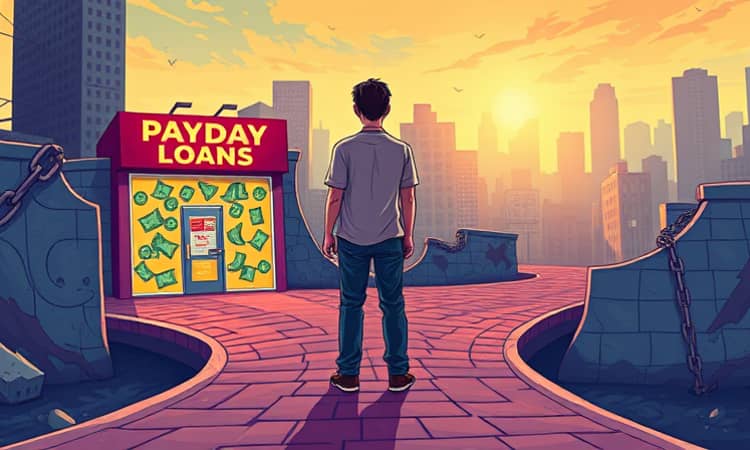
As individuals navigate the complexities of personal finance, payday loans have emerged as a contentious option. They promise quick cash relief for those in urgent need, often leading consumers to take advantage of these financial tools without fully understanding their implications. While payday loans can provide immediate funds, they also come with significant risks that can entangle borrowers in a cycle of debt.
The ease of access and minimal requirements bait many into applying for payday loans. The idea of getting fast cash to cover unexpected expenses is enticing, particularly when one is already facing financial strain. However, many are unaware of the long-term financial consequences that can arise from these short-term solutions, often leading to more severe monetary issues down the road.
In this article, we will explore the nature of payday loans, their appeal, and the dark side that accompanies them. We will also discuss alternatives that can provide more sustainable financial solutions, as well as tips for those who find themselves tempted to rely on these high-interest loans. By understanding the intricacies of payday loans, borrowers can make more informed decisions and avoid potential traps.
Understanding Payday Loans
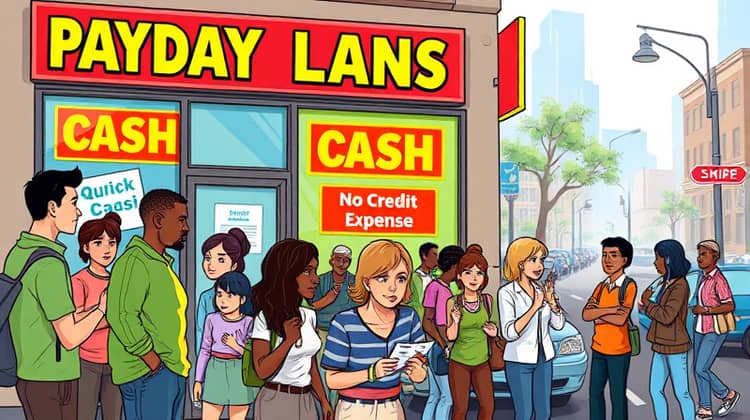
Payday loans are short-term, high-interest loans that are typically due on the borrower's next payday. They are designed to provide quick cash relief to individuals in need of funds to cover urgent expenses, such as medical bills, car repairs, or other financial emergencies. However, the appealing characteristics of payday loans can quickly become a double-edged sword.
Unlike traditional loans, payday loans often have minimal eligibility requirements, making them accessible to individuals who may not qualify for bank loans or credit cards. This ease of access attracts many borrowers who are desperate for cash, but it can also lead to impulsive decisions without considering the potential repercussions.
The amount borrowed is usually small, often ranging from $100 to $1,000. However, the interest rates and fees associated with these loans can be exorbitantly high. Borrowers may find themselves paying back two or three times the original amount they borrowed, leading to a cycle of repeated borrowing and increased debt.
The Appeal of Payday Loans

One of the primary attractions of payday loans is the speed at which funds can be obtained. In many cases, borrowers can complete an application online and receive money in their bank account within hours. This immediacy can provide a much-needed lifeline during financial emergencies, allowing individuals to avoid missed bills or other pressing issues.
Moreover, payday loans do not require extensive credit checks or lengthy approval processes. This convenience is particularly appealing to those with poor credit histories, who might feel excluded from other financial services. However, such ease often comes at a steep price, as borrowers may not comprehend the long-term cost of a payday loan until they are trapped in the repayment cycle.
- Quick access to cash
- Minimal requirements for approval
- No lengthy paperwork or credit checks
These factors contribute to a growing reliance on payday loans, as they seem like a simple solution to complex financial problems. However, it is essential to evaluate whether the benefits truly outweigh the risks associated with these loans before diving in.
How Payday Loans Work
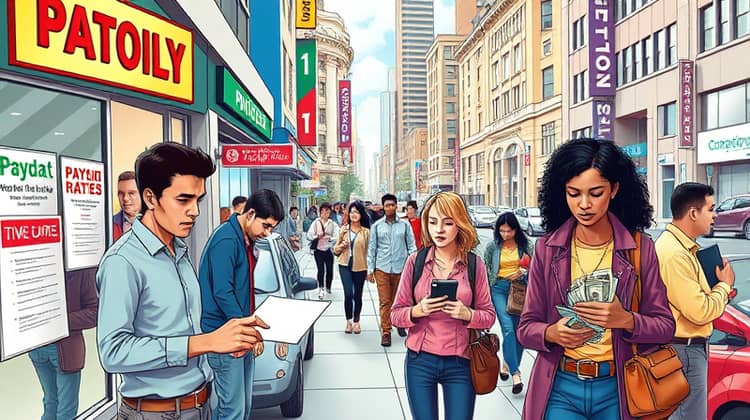
When a borrower takes out a payday loan, they typically write a post-dated check or authorize an electronic withdrawal from their bank account for the loan amount plus fees. This arrangement is meant to be repaid on the next payday, often within two to four weeks. The high-interest rates can range from 200% to 1,000% APR, making it exceptionally costly to borrow even a small amount.
The loan repayment is primarily reliant on the borrower's ability to repay the loan on the due date. If the borrower cannot repay the loan, they may face additional fees or the option to roll over the loan, extending the repayment period for an extra fee, which often compounds the debt further. This arrangement can lead to a vicious cycle of debt, where borrowers are forced to take out additional loans just to pay off previous ones.
Regulatory frameworks governing payday loans vary widely across jurisdictions, with some areas implementing strict limits on interest rates and loan terms while others maintain a laissez-faire approach. This inconsistency means that the risks associated with payday loans can be heightened in certain regions where lenders may exploit vulnerable populations without adequate recourse for borrowers.
Consequently, it is vital for borrowers to educate themselves about the laws governing payday loans in their area. Knowing the terms and conditions before committing can help individuals avoid unintentional entrapment in a cycle that can lead to severe financial distress.
The Dark Side of Payday Loans

While payday loans may provide quick relief, they can also lead to financial ruin for many. The looming inadequacy of wages and the inability to manage unforeseen expenses can compound the cycle of dependency on these loans. Statistics show that many borrowers end up taking out multiple payday loans to cover outstanding obligations, creating a spiral of debt that seems unending.
As borrowers struggle to meet repayment deadlines, they may find themselves borrowing from multiple lenders, further enlarging their financial burdens and increasing the risk of defaults. Such overwhelming debt can result in bankruptcy, loss of assets, and a tarnished credit score, making future financial opportunities even more difficult to attain.
- High interest rates
- Risk of falling into a debt trap
- Potential to damage credit scores
Recognizing the severe implications of payday loans can help prospective borrowers make informed financial decisions and consider other available alternatives.
Alternatives to Payday Loans

Instead of resorting to payday loans, individuals facing financial difficulties should explore more sustainable alternatives. Various options can provide assistance without the astronomically high costs associated with payday loans. Local charities and churches may offer emergency assistance programs tailored to help those in need.
Additionally, many credit unions and community banks provide small personal loans that come with more favorable terms and less severe penalties than payday loans. These institutions often prioritize their member's financial health, making them a viable option for those looking to avoid predatory lending practices.
- Credit union loans
- Installment loans
- Personal loans from friends or family
Exploring these alternatives can empower individuals to take control of their finances without falling prey to the high costs of payday loans.
Tips for Avoiding Payday Loan Traps
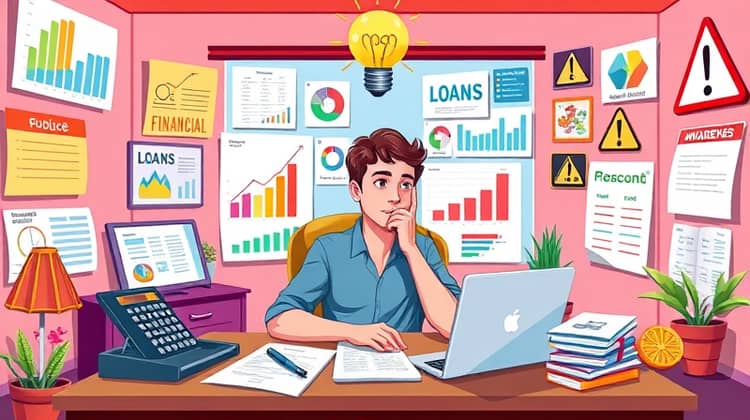
If someone finds themselves in a position where they might consider a payday loan, preparation and awareness are essential. Understanding the terms, costs, and potential consequences can make a significant difference in one's financial health. Educating oneself about money management and budgeting can create a robust sense of agency that helps prevent falling into financial traps.
Additionally, it's crucial to consider whether the loan can truly be repaid by the due date without resorting to further debt—a fundamental question that every prospective borrower should ask themselves.
- Always read the fine print before signing any loan agreement.
- Assess your ability to repay the loan in full on the due date.
- Explore all other options before considering a payday loan.
Being vigilant and informed can act as a protective layer against the pitfalls of payday loans, allowing individuals to make responsible financial decisions.
Conclusion
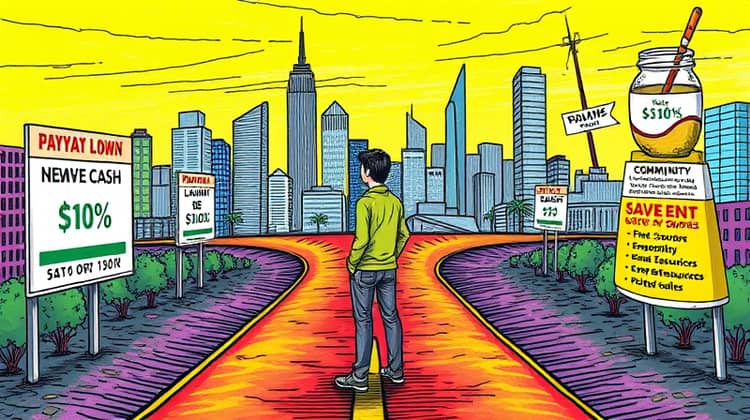
In conclusion, while payday loans may appear as a quick fix for urgent financial challenges, they often lead to a cycle of overwhelming debt and financial hardship. Understanding how these loans work, and their risks, is crucial for making informed financial decisions. The lure of immediate cash can overshadow the long-term implications, making it vital to thoroughly evaluate one's financial circumstances and options.
Additionally, as the financial landscape evolves, so too do the alternatives to payday lending. Individuals can find various resources and support systems geared towards financial stability that do not involve the high risks associated with payday loans. Armed with knowledge and alternatives, borrowers can break away from the cycle of dependency on high-interest loans that ultimately cause more harm than good.
By promoting financial literacy and awareness, we can pave the way for a future where individuals are empowered to make sound financial decisions, avoiding the pitfalls of payday loans, and opting instead for healthier alternatives that foster long-term financial well-being.






